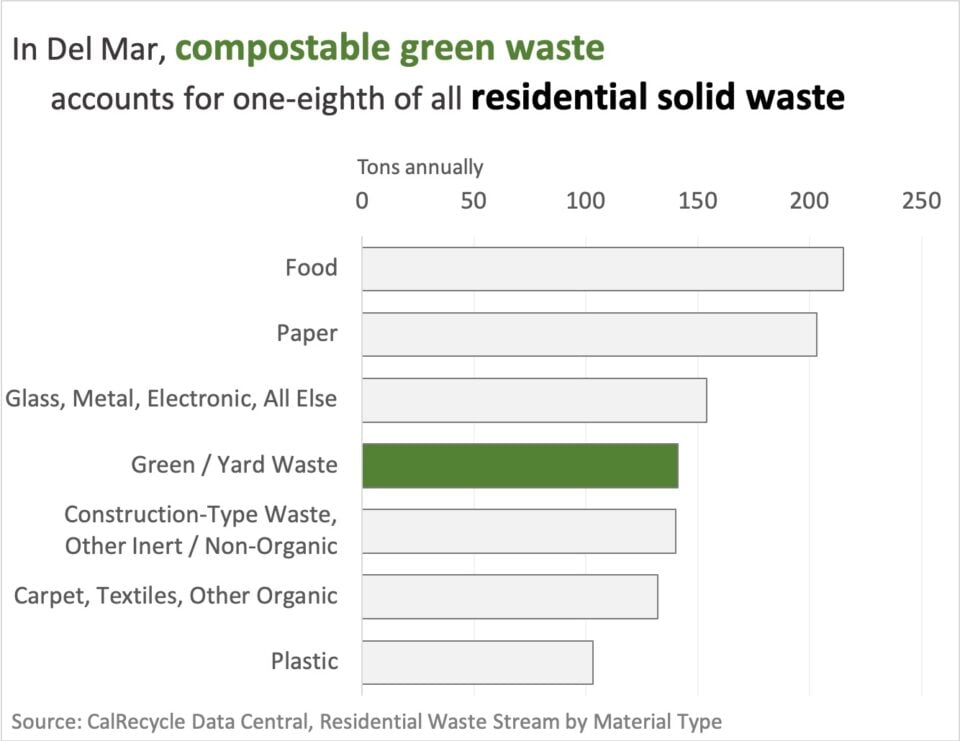DEL MAR — In order to divert a greater proportion of green waste from ending up in landfills, in compliance with state law, Del Mar residents will pay roughly 10% higher waste disposal fees beginning August 1.
“Del Mar’s green waste was typically sent to landfills and used as cover-material to control for erosion and vectors [pathogen-carrying organisms],” according to a staff report delivered to the Del Mar City Council at their July 20 meeting.
But beginning this year, according to 2014 state legislation (AB 1594), sending green waste to landfills no longer counts toward the city’s state-mandated target of a 50% recycling rate. The city must now divert green waste from landfills to composting sites.
Green waste includes “yard waste, leaves, grass clippings, landscape wood waste, and weeds,” which accounts for “a significant portion of the solid waste that is disposed of by residents,” according to the staff report.
Del Mar’s households generate 141 tons of green waste annually, accounting for about one-eighth of all residential waste, according to data from California’s Department of Resources Recycling and Recovery. That works out to about 66 pounds per resident per year — the same proportion as North County in aggregate, a bit above the countywide average of 64 pounds per resident per year.
The added cost of diverting green waste from landfills —about $36,000 per year — doesn’t fall to Waste Management, the firm from which the city has contracted waste disposal service since 1999.
Rather than pay the difference out of city coffers, the council voted unanimously July 20 to pass the cost to users in the form of higher monthly fees. Residential customers will now pay between $19 and $24 per month, depending on trashcan size, reflecting a rate increase no more than roughly $2 to $3.
“Diverting this material to use as compost is recycling, and treating the organic material as a resource rather than waste keeps methane-producing materials out of the landfill,” according to the staff report. “This helps extend the usable space of the landfill and meets California’s mandatory organics recycling requirements. Mandatory recycling of organic waste is the next step towards achieving California’s recycling and greenhouse gas (GHG) emission goals and supports the zero waste and organic waste diversion goals in the city’s Climate Action Plan.”
The Climate Action Plan adopted in 2016, projected that Del Mar’s total solid waste — some fraction of which is green waste — would generate 3,100 metric tons of carbon dioxide by 2020 and 3,300 metric tons by 2035. The plan aimed to divert 80% of solid waste from landfills by 2020 and 95% by 2035.



